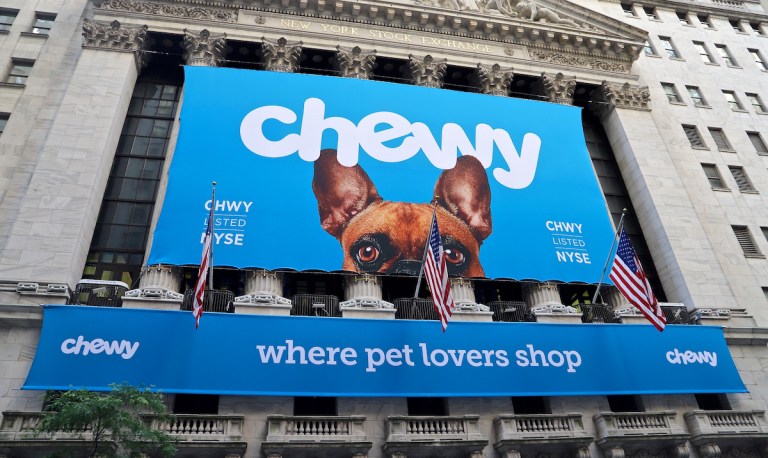Chewy: Consumers Starting to Adopt Pets Again After Inflation Pullback

With pets proving to be a financial strain for many consumers, Chewy has been seeing them hold off on adopting new pets until inflation eases up. Now, some people are finally ready to take on the responsibility.
Chewy CEO Sumit Singh said during a call with analysts Wednesday (May 29) discussing the online pet product retailer’s first-quarter fiscal 2024 earnings results that after years of declines in pet households, the company’s data from shelters and other pet rescues finally shows a “positive balance between adoption and relinquishment.” However, it would be “premature” to dub this an unqualified “industry turnaround.”
Chief Financial Officer David Reeder noted that pet parents’ adoption and relinquishment behaviors are strongly tied to macroeconomic trends.
“From what would turn customer accounts positive, … really, we needed inflation to normalize,” Reeder said. “… Inflation in the market normalizing would free up discretionary income for consumers, would give them the ability to then become additional pet parents in the future.
He said the company is looking for “normalization of inflationary pressures that are putting discretionary spending with the consumer under pressure” and added it is starting to see “some green shoots” in that respect.
Consumers’ financial concerns about pet parenthood are exacerbated by the expectation to spring for premium goods for their animals even at times of economic challenges, according to the PYMNTS Intelligence report “Consumer Inflation Sentiment Report: Consumers Cut Back by Trading Down.”
The study’s survey of over 2,000 U.S. consumers revealed that while 36% of grocery shoppers had switched to buying more affordable versions of products because of inflation, they were reluctant to do so for their pets. Supplemental findings from the report indicated that 26% of consumers had made this switch for their own snacks, and 25% did so for their own sugary treats. However, only 12% of shoppers opted for lower-quality pet food and supplies, which is the smallest percentage compared to any other type of grocery purchase.
Consumers are actually spending more on their pets. Chewy reported a 3.1% year-over-year increase in net sales. Plus, it saw a 6% rise in Autoship customers, with these discount-refill subscribers accounting for a greater share of the company’s total sales.
“Autoship can be an attractive funnel of entry, which it currently is, and then you essentially approach customers with saying, ‘Look, the price of the program is less than what you pay for a latte, and for all of this, you get all these great benefits,’” Singh said.
Chewy’s subscription offerings are helping it capture market share from brick-and-mortar retailers by meeting consumer demand for convenience, according to the PYMNTS Intelligence report “The Replenish Economy: A Household Supply Deep Dive.” The study surveyed over 2,000 U.S. consumers and found that 15% of retail subscribers use Chewy’s Goody Box pet food and toy subscription program. Among these, 53% shop in stores less frequently thanks to this program, and 11% have stopped shopping in stores for these items altogether.
For all PYMNTS retail coverage, subscribe to the daily Retail Newsletter.